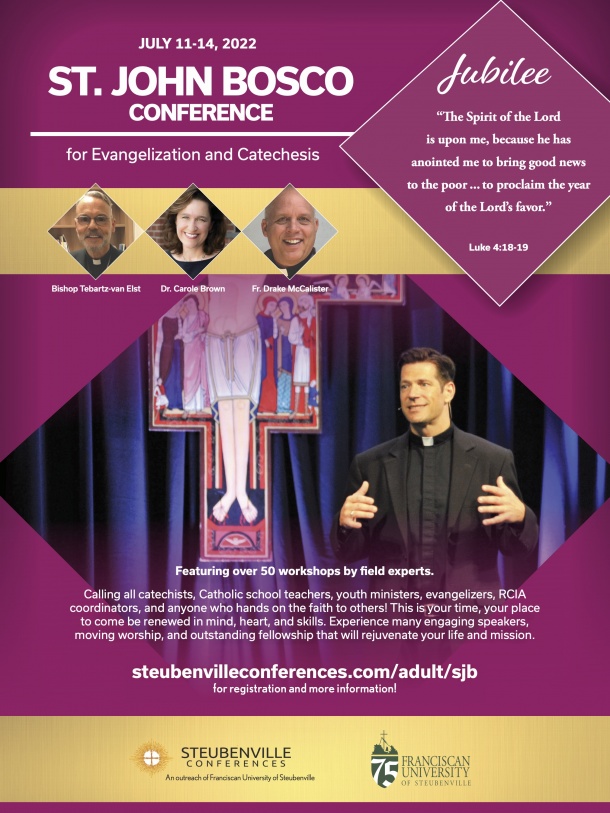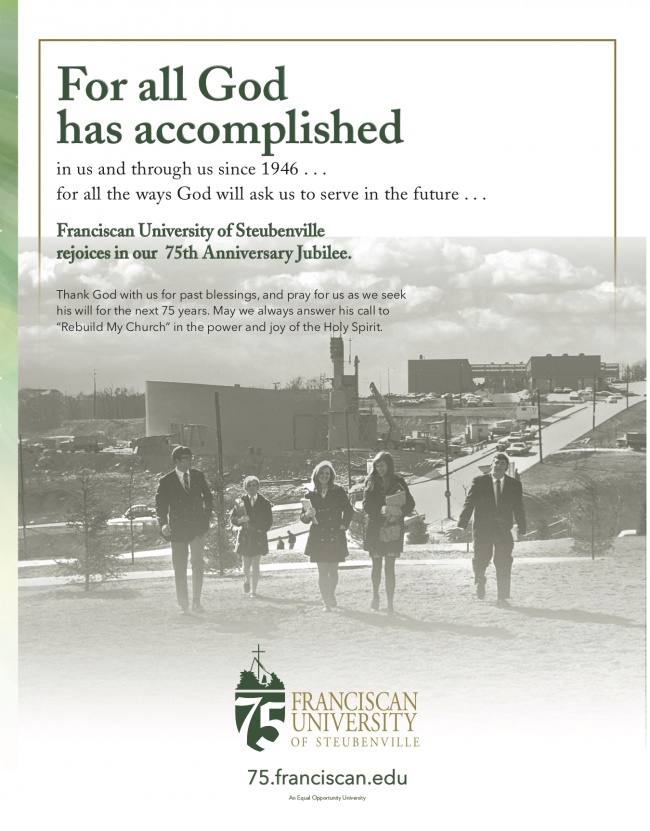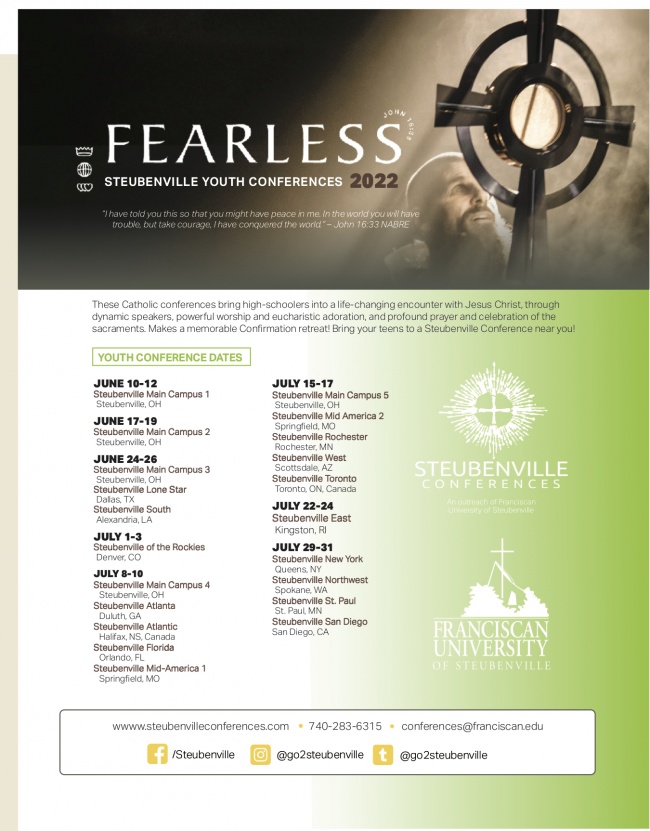Youth & Young Adult Ministry: Free to Hope
As I write this article, I'm nursing the tail end of a mild bout of COVID-19. I don’t share that for pity but to point out how much the world has changed in the past few years. Before this decade, I didn't know what a novel coronavirus was. Everything I understood about pandemics was mainly picked up from disaster movies. Social distancing was only a dream my introverted wife possessed in her heart. And the virus that demanded fear as it first swept across the planet is now so common that it's possible to write an article while infected. Though we can celebrate the medical advances and technology that have helped us fight COVID-19, as the dust still settles on the pandemic, we are just now getting a real glimpse of how all this has affected today’s youth.
The CDC recently released a study revealing that over one-third of high schoolers have experienced poor mental health since the pandemic. At the same time, almost half acknowledge a persistent feeling of sadness or hopelessness.[i] Perhaps these stats are surprising, or maybe they are not; teens’ general mental health and well-being were on the decline long before COVID-19. However, we would be remiss if we failed to acknowledge the unique needs that young people now face. Though vaccinations and vitamins may combat the virus, it will take something far more powerful to heal these more profound ailments now facing teens’ interior life. To find the answers to the deepest sorrows of this life, we must turn our minds to the next one. The virtue of hope helps us do just that.
[i] Centers for Disease Control and Prevention, “New CDC data illuminate youth mental health threats during the COVID-19 pandemic,” CDC Newsroom, March 31, 2022, https://www.cdc.gov/media/releases/2022/p0331-youth-mental-health-covid-...
Children's Catechesis: For Freedom Christ Has Set Us Free
Diego is eleven years old. For years he has received religious formation through the Catechesis of the Good Shepherd (CGS) in a carefully prepared environment for the religious life of children called an atrium. He is working with a material known as the “Unity and Vastness of the Kingdom of God,” a timeline that takes a long and essential view of the history of salvation. Diego ponders the moment in this history when God says, “Let us make humankind in our image and likeness” (Gen 1:26). The catechist asks: “What do you think that means?” Diego never answers immediately. After a few minutes, he says, “It means we are able to live the Maxims.” Then, he brings over the box of “The Maxims of Jesus.”[1] This material consists of twelve wooden tablets, each holding a scripture verse of Jesus’ moral announcements. Under the words of Genesis, he places some of these Maxims:
- “. . . be perfect, just as your heavenly Father is perfect.” (Mt 5:48)
- “I give you a new commandment: love one another as I have loved you” (Jn 13:34)
- “You shall love your neighbor as yourself.” (Mt 22:39)
While Diego has not yet studied the Catechism of the Catholic Church, he is living what it teaches: “Freedom is exercised in relationships between human beings. Every human person, created in the image of God, has the natural right to be recognized as a free and responsible being. All owe to each other this duty of respect. The right to the exercise of freedom, especially in moral and religious matters, is an inalienable requirement of the dignity of the human person” (CCC 1738).
In the atrium, Diego is “recognized as a free and responsible being” and is given the time and the space needed for him to exercise that freedom. It is his response to being called by name by his Good Shepherd, Jesus Christ, who “loves you; he gave his life to save you; and he is now living at your side every day to enlighten, strengthen and free you.”[2]
[1] The Maxims of Jesus are key announcements from Jesus found in the New Testament that provide guidance on living in relationship with God.
[2] Francis, Evangelii Gaudium, no. 164.
Youth & Young Adult Ministry: Ministering to Youth in the Cancel Culture

Over the past seven years that I have been working in youth ministry, the only thing that has remained consistent is that young people are constantly changing. The middle and high school students I worked with in my first year of ministry are radically different from the students I encounter today.
There are a vast number of factors to consider when looking at the constantly shifting youth culture, but it is certainly the case that the dawn of TikTok partnered with a global pandemic has catapulted our young people into a new era—an era defined by uncertainty, division, and an increasing investment in their own experience and the experience of those around them.
Our young people today, more than any previous generation, have a deep interest in the well-being of others. We see this in the social issues that are at the forefront of their minds: health care, equality, mental health awareness, etc.[1] It is clear that, on some level, they recognize the value of the human person and they want to be part of helping people experience a deep sense of belonging. This emotional investment, while in itself commendable and inspiring, when coupled with a narrative that leaves no room for disagreement has given birth to what is referred to as the “cancel culture.”
This so-coined cancel culture has stripped from popular society the ability to discuss and disagree while still standing on a foundation of love. It has manipulated the younger generation’s good and beautiful desire to create spaces of belonging and has taught them that those who have different perspectives can and should be written off entirely.
This, of course, has key implications for the Church and her ministers and what it looks like to invest in our young people in the midst of the cancel culture.
Encountering God in Catechesis: A Spirit-Led Classroom
 To the surprise of my friends and family, I love being a middle school teacher. While admiring my enthusiasm, most people picture a hectic classroom filled with rowdy youth. It is true, some days I swear my students are on their second cup of coffee by first period. I have learned to enjoy these days because underneath all of that energy rests a deep desire to encounter Christ. In their fast-paced culture, young people’s hearts crave moments of silence, peace, and union with Jesus. When I first started teaching, I wanted each middle schooler to learn how to pray and to begin their relationship with Christ, but my efforts were not bearing much fruit.
To the surprise of my friends and family, I love being a middle school teacher. While admiring my enthusiasm, most people picture a hectic classroom filled with rowdy youth. It is true, some days I swear my students are on their second cup of coffee by first period. I have learned to enjoy these days because underneath all of that energy rests a deep desire to encounter Christ. In their fast-paced culture, young people’s hearts crave moments of silence, peace, and union with Jesus. When I first started teaching, I wanted each middle schooler to learn how to pray and to begin their relationship with Christ, but my efforts were not bearing much fruit.
I was doing something wrong. I began by praying the Our Father and Hail Mary with each class. My students knew these prayers from elementary school and did not show much excitement for praying them. My solution was to further explain the biblical origin of these basic prayers. While doing this helped a little, I still knew most of my students were not encountering Christ. No matter how much time I spent explaining the Our Father or Hail Mary, my voice was always the loudest one in the room. Even after introducing other prayers, there was no noticeable change. Why did the Holy Spirit not seem present?
I prayed the words of Saint Paul, “Likewise the Spirit helps us in our weakness; for we do not know how to pray as we ought, but the Spirit himself intercedes for us with sighs too deep for words” (Rom 8:26). I needed the Spirit to teach my students to pray!
Youth & Young Adult Ministry – The Miracles God Can Work in Just Forty Hours a Week: The Fruits of Boundaries in Ministry
Who could survive a low-paying, time-consuming, unpredictable, and exhausting job for more than a few years? And if they do survive, who could possibly thrive, especially as a family? We are living proof that it is possible, but it takes an important skill that many of us were not taught: building and protecting boundaries.
The first requirement to continue in ministry for more than a few short years is, of course, knowing ourselves to actually be called by God to this work. When we are called by God, bringing others into a deeper union with Christ and his Church in a substantial and concrete way becomes our overarching purpose. All Christians have this call by reason of their baptism, but not everyone is called to make it his or her professional employment. When considering full-time ministry work, there are important questions about boundaries that require clear answers. Can we do God’s will to the fullest in just the forty hours a week we are hired for? Does having time clearly set apart when we are completely removed from work limit our ability to love and serve unconditionally? If we are not at every event or providing several weeknight activities each week, how will we reach people well?
AD: St. John Bosco Conference for Evangelization & Catechesis, July 11-14
To learn more or to register for the St. John Bosco Conference, click here or call 740-283-6315.

Encountering God in Catechesis
Several years ago, I was working as a parish Coordinator of Youth Ministry, and one of my responsibilities was teaching a high school religious education class. The class was arranged by the parish DRE and met as part of her programming each Wednesday night. There was no set textbook or program. We had a wide range of topics and materials available, and we were able to move as the class needed. The class was comprised of a diverse range of students with varying backgrounds and levels of catechetical formation. Mid-year, a new family moved to the parish. The parents only spoke Spanish, and they had two sons in high school who had very little formal religious education.
The older of the sons was in eleventh grade. He didn’t speak much. I’ll refer to him as “Frank.” You could tell by what few personal stories he shared that Frank’s life was a hard one. He lived in a bad neighborhood. He adored his parents, who were hard-working, but recognized that they were consumed by the preoccupation of the family business and were also not as devout as they expected their children to be. The boys completed that school year and came back the following fall.
Youth Ministry in the Inner City
 “With such affection for you, we were determined to share with you not only the gospel of God, but our very selves as well” (1 Thes 2:8).
“With such affection for you, we were determined to share with you not only the gospel of God, but our very selves as well” (1 Thes 2:8).
AD: Franciscan University—Celebrating 75 Years of Service to the Church
For more information about the celebrations for the University's 75th Anniversary, please go to 75.franciscan.edu. Or call (740) 283-3771.

AD: FEARLESS! 2022 Steubenville Youth Conferences Schedule
For more information on the 2022 Steubenville Youth Conferences, go online at www.steubenvilleconferences.com or call 1-740-283-6315.



